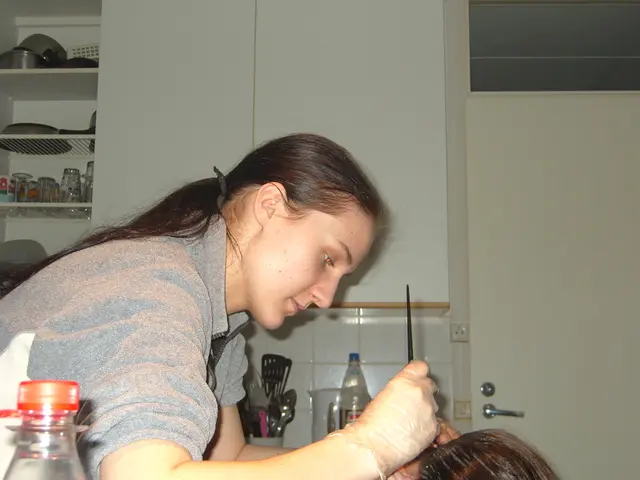Hormones Hold Potential for Anti-Aging Skincare
Utilizing the age-defying abilities of hormones for longevity purposes
In a recent study, an international team of researchers delved into the hormones that play significant roles in skin aging, with the aim of exposing the intricate connections between these hormones and the aging process. The study, led by Dr. Markus Boehm of the University of Munster in Germany, investigated key hormone players that regulate the aging of skin and hair.
The investigation encompassed various hormones, including insulin-like growth factor 1, growth hormone, estrogens, retinoids, and melatonin. These hormones were found to exert extraordinary biological effects on skin function and hair growth, as corroborated by certain genetic deficiency syndromes. Moreover, the researchers considered numerous endocrine players that could potentially contribute to the skincare and haircare fields.
According to Dr. Boehm, certain hormones in the study have anti-aging properties and may serve as effective agents for preventing skin aging in the future. He highlighted alpha-melanocyte-stimulating hormone, members of the hypothalamic-pituitary-thyroid axis, oxytocin, endocannabinoids, and peroxisome proliferator-activated receptor modulators as prime examples. These hormones showed remarkable promise in areas such as UV-induced genotoxic stress, photoaging, and pigment synthesis within skin and hair.
The skin is both the primary target for various hormones controlling skin aging and the largest producer of hormones outside of classical endocrine glands. Consequently, further exploration of these hormones could pave the way for the development of new therapeutics aimed at treating and preventing skin aging.
Some of the hormones included in this study are not readily accessible. For example, you can't purchase insulin-like growth factor 1 or growth hormone in drugstores. However, other hormones such as melatonin are readily available and intriguing as potential anti-aging substances for the skin. Melatonin supplements are sold in drugstores and online, as well as skincare products containing melatonin.
Endocannabinoids, which can be found in CBD products, are another example of accessible hormones with intriguing potential. These substances have been shown to promote new cell growth while decreasing damaged cell numbers. Endocannabinoids are available in both skincare and supplement forms, but it is essential to exercise caution when buying CBD products as some may contain little to no CBD or be derived from impure sources.
Oxytocin, often referred to as the "love hormone," is another fascinating compound for its role in promoting happiness. It cannot be obtained in an over-the-counter format but can be produced naturally through activities such as giving and receiving hugs, having an orgasm, singing or crying, exercising, and petting a dog. Additionally, ensuring sufficient vitamin D intake may aid in the regulation and function of oxytocin.
- The study, led by Dr. Markom Boehm, discovered that certain hormones like alpha-melanocyte-stimulating hormone and peroxisome proliferator-activated receptor modulators have potential anti-aging properties that could be utilized in the future for preventing skin aging.
- While hormones like insulin-like growth factor 1 and growth hormone are not readily accessible, hormones such as melatonin, found in skincare products and supplements, and endocannabinoids, found in CBD products, hold intriguing potential as anti-aging substances.
- Skin care and health-and-wellness products now include hormones like melatonin and endocannabinoids, which have been shown to have positive effects on skin function and health.
- In the pursuit of wellness, women exploring menopause can benefit from understanding the role of hormones like oxytocin in promoting happiness, albeit not as an over-the-counter substance, but through natural activities like giving hugs, exercise, and petting a dog.








